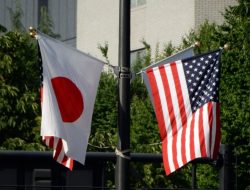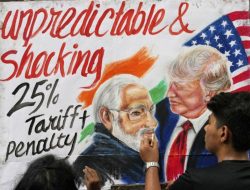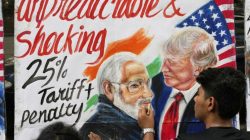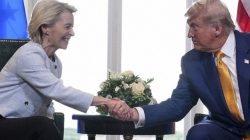The East Asia Summit trade tensions issue became a top concern on Friday as foreign ministers from 18 nations gathered in Kuala Lumpur. The chairman’s draft statement reflected growing unease about global trade instability. However, it carefully avoided naming the United States directly.
Ministers from ASEAN countries joined counterparts from China, Russia, Japan, South Korea, and the U.S. They convened amid heightened anxiety following new tariff announcements by U.S. President Donald Trump. These tariffs, which affect over 20 countries including most ASEAN members, are scheduled to begin on August 1.
Statement Highlights Risks and Cooperation
According to the draft, Malaysian Foreign Minister Mohamad Hasan, who chaired the summit, noted that participants expressed “concerns over rising global trade tensions and increasing uncertainty in the international economic landscape.” Moreover, he stressed the importance of reinforcing economic cooperation among East Asia Summit members.
Although the statement did not directly mention U.S. tariffs, it reaffirmed support for a rules-based multilateral trading system. Notably, it emphasized the central role of the World Trade Organization (WTO) in ensuring economic stability.
Furthermore, sources familiar with the matter confirmed that the United States approved the final language of the draft.
Addressing Broader Global Challenges
In his opening remarks, Hasan identified various threats to peace and prosperity. These included regional conflicts, intensified great power competition, economic fragmentation, and rapid technological change.
He added, “These global and regional dynamics are shifting rapidly.” As a result, he warned that institutional strength and international cooperation would be put to the test.
Key Players Participate in Closing Meeting
The summit brought together high-ranking officials such as Japanese Foreign Minister Takeshi Iwaya, U.S. Secretary of State Marco Rubio, Russian Foreign Minister Sergey Lavrov, and Chinese Foreign Minister Wang Yi. Their participation underscored the strategic weight of the East Asia Summit.
This ministerial session marked the conclusion of several ASEAN-related meetings that began earlier in the week. Held in the Malaysian capital, these discussions aimed to strengthen diplomacy and tackle shared regional challenges.
ASEAN’s Central Role
ASEAN comprises ten nations: Brunei, Cambodia, Indonesia, Laos, Malaysia, Myanmar, the Philippines, Singapore, Thailand, and Vietnam. Together, they collaborate with external partners through the East Asia Summit platform.
Consequently, the summit continues to play a critical role in maintaining dialogue on regional security, trade, and diplomacy.








